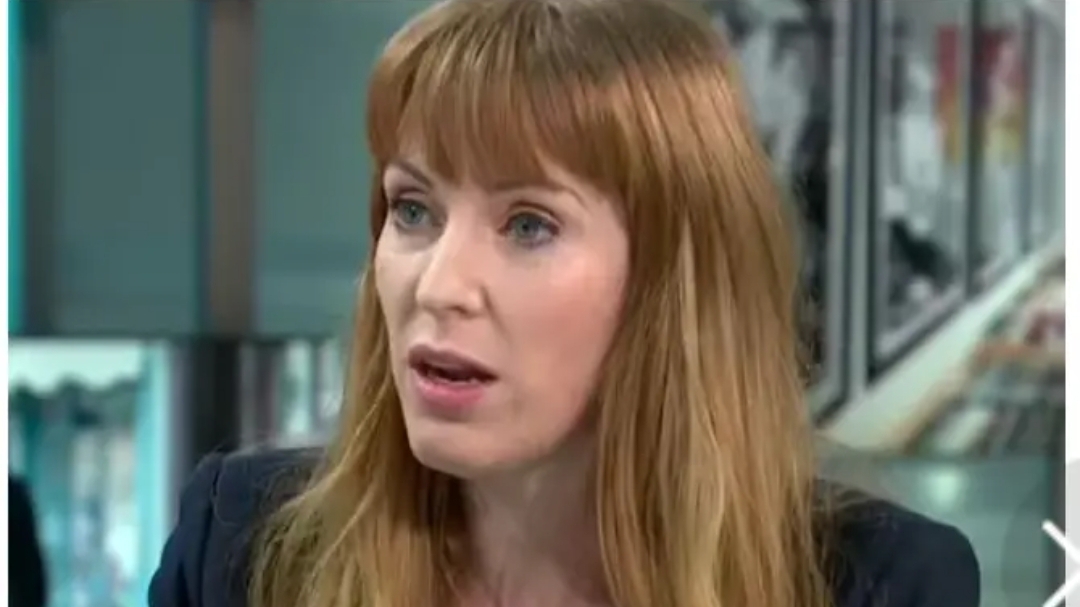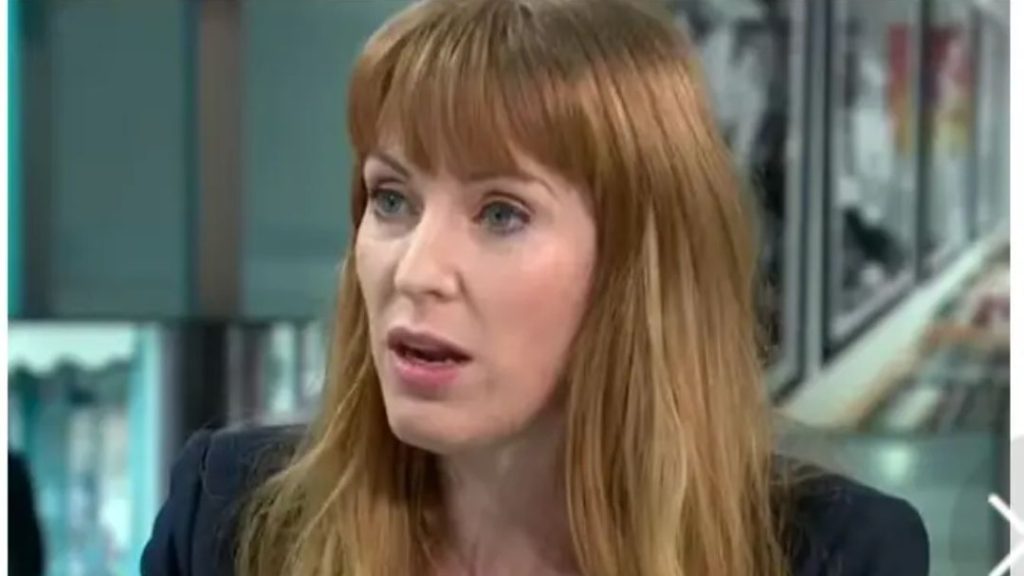
Labour politician Angela Rayner’s appearance on Good Morning Britain Tuesday morning stirred controversy as she faced intense scrutiny from ITV viewers during the live interview. Rayner’s handling of questions related to the Israel-Hamas conflict left audiences heated, as her responses were met with criticism and condemnation, branding the segment a “car crash” due to the manner in which she addressed the sensitive topic.

According to Express, Hosts Susanna Reid and Richard Madeley engaged Rayner in a heated exchange, focusing on her recent encounter with a Palestine protester during a Labour Party fundraiser and challenging her stance on the Israel-Hamas conflict. The interview quickly escalated into a fierce debate, with Rayner’s refusal to support a ceasefire and her reasons for doing so drawing strong reactions from both the hosts and viewers.
The contentious interview highlighted the deep divisions and polarizing viewpoints surrounding the Gaza conflict, as well as the challenge that politicians like Rayner face in navigating the complex and highly sensitive issue. As the debate unfolded live on air, Rayner’s responses sparked outrage and frustration among the audience, with many slamming her approach as a missed opportunity to advocate for peace and de-escalation.
Viewers, who were eagerly tuning in to follow the discussion, were quick to express their discontent with Rayner’s handling of the topic. Social media platforms were flooded with posts condemning her refusal to support a ceasefire, with many criticizing her reasoning and expressing disappointment in her approach to the conflict. The “car crash” label quickly gained traction, capturing the sentiment of those who found the interview disjointed, unconvincing, and poorly managed.
The interview, which was intended to shed light on Rayner’s perspectives and position on the Israel-Hamas conflict, instead illuminated the challenges and sensitivities surrounding the issue. Rayner’s reluctance to endorse a ceasefire and her justifications for her stance became focal points of the discussion, exposing the divide among the audience and prompting a flurry of impassioned reactions
The on-air clash drew widespread attention on social media and beyond, as viewers across the country weighed in on the interview and its implications for political discourse and diplomatic efforts. Rayner’s handling of the interview, as well as the hosts’ rigorous questioning, fueled a broader conversation surrounding the Israel-Hamas conflict, its global impact, and the role of political leaders in advocating for peace and resolution.
The intense scrutiny and backlash sparked by Rayner’s interview underscore the challenges and high stakes involved in addressing issues as complex and politically charged as the Israel-Hamas conflict. The impact of her stance and the discourse that it generated shed light on the deeply entrenched perspectives and divergent interpretations of the conflict, as well as the expectations placed on public figures to articulate and advocate for solutions.
As the public debate continues to unfold and Rayner’s interview resonates with audiences, the larger implications for the discourse surrounding the Israel-Hamas conflict and its broader geopolitical ramifications remain at the forefront. The “car crash” interview has reinvigorated discussions on diplomacy, peace initiatives, and the role of political leaders in shaping public opinion, underscoring the critical nature of the Israel-Hamas conflict and the imperatives of responsible and balanced engagement with the issue




